More than 30 years down the line, Bhutto refuses to die
KARACHI: It has been more than three decades since he was hanged from the noose for a crime, which many believe till this day, he did not commit. Why then, does the man who rose from being Ayub Khan’s ‘blue-eyed boy’ to one of Pakistan’s most powerful Prime Ministers in recorded history, wield so much power and sway over the populace till date?
There were many qualities that one admired in Zulfikar Ali Bhutto. For one, he was sharp, brilliant and a genius. Bhutto belonged to an affluent, feudal family and had been educated from abroad. Yet one look at his historic speeches in front of mammoth crowds and you see him talk about the poor, destitute and the downtrodden. His enigmatic speeches, his panache and fiery words used to rouse the public’s emotions. Never had the people of Pakistan witnessed such a phenomena before; a politician and showman, all in one.
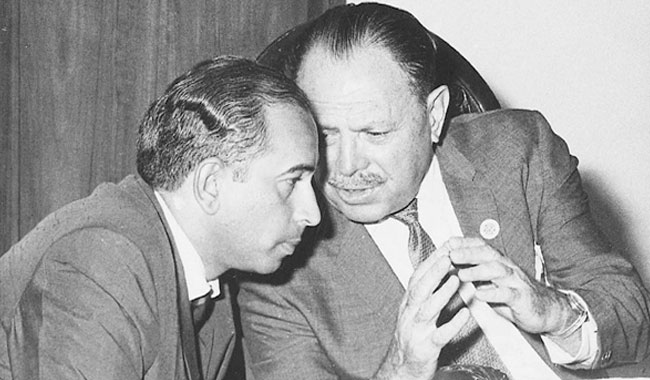
Ayub Khan's once 'blue-eyed boy'
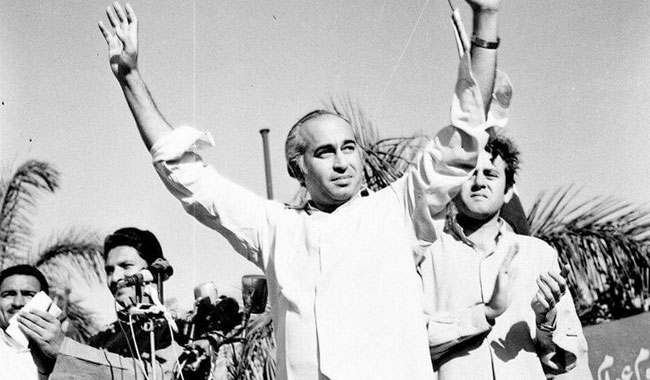
Always brilliant: A young Bhutto
Bhutto’s words were fiery, his slogans were piercing and his movements were historic. From train marches to large gatherings, his popularity inspired the youth to come forward and band with him against Ayub Khan. Once among his henchmen, Bhutto parted ways with Ayub over differences regarding the Tashkent Agreement, among other matters. His charismatic personality and bold demeanor inspired Pakistan’s student activists to join him in droves and align with him against Ayub. Sooner or later, Ayub resigned and Bhutto swept the elections of 1970 administered by Yahya Khan.
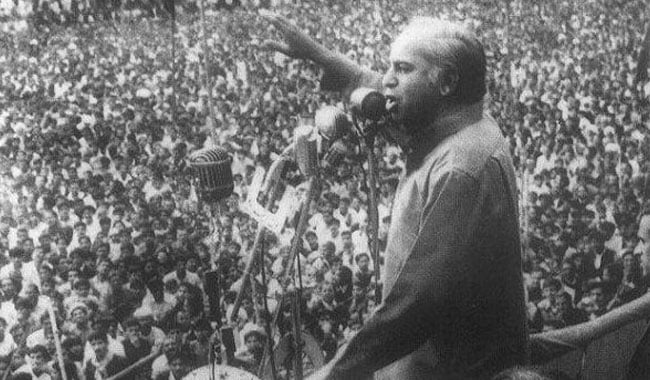
Bhutto addresses a mammoth gathering
Trouble brew in the region when Mujib revolted after the 1970 elections and a war with India was definitely on the cards. What wasn’t, however, was surrender and it was yet again Bhutto who had to unite the people. That he did with renewed vigour and determination. Assuming the mantles of President and Chief Marshal Law Administrator, Bhutto furthered ties with Beijing and Moscow as well as with the Muslim community. Pakistan, who had suffered a loss to India in the war of 1971, under Bhutto’s shrewd vision, allied itself with influential Muslim nations such as Saudi Arabia, Libya, Iran, Iraq and others. He had been an excellent advocate for Pakistan as foreign minister under Ayub Khan and now that he had a hold of Pakistan’s reins, the nation’s foreign policy was certainly in safe hands.
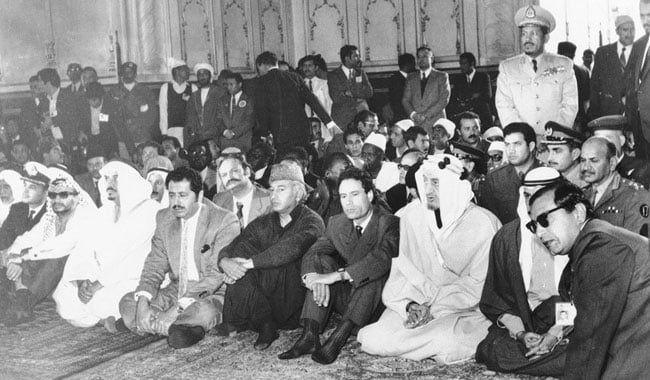
Bhutto with Muslim leaders
Internally, Pakistan was making strides as well. On March 1, 1972 he introduced land reforms, and on July 2, 1972, signed the Simla Agreement with India, which paved the way for the return of occupied lands and the release of 90,000 Pakistani prisoners captured in East Pakistan in the 1971 war. The passing of the 1973 Constitution was a landmark achievement and Bhutto deserved credit for it. He was sworn-in as the Prime Minister of the country after the constitution came into being.
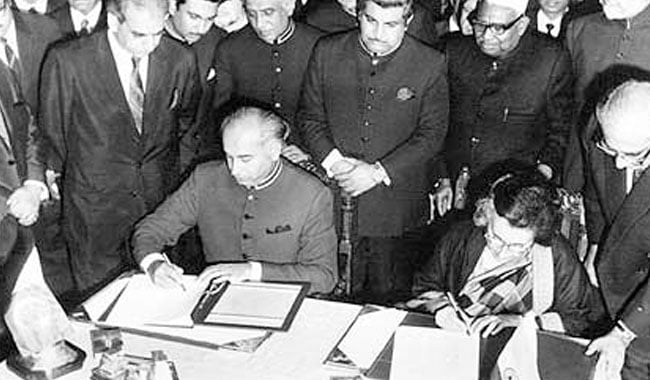
Bhutto and Indira Gandhi sign Simla Agreement
On December 30, 1973, Bhutto laid the foundation of Pakistan's first steel mill at Pipri, near Karachi. However, a nationalization policy did not go down well with opposition parties, who started clamouring for change. Bhutto emerged victorious after elections of 1977 but a nine-party alliance composed mainly of rightist elements under the banner of PNA (Pakistan National Alliance) joined hands to topple Bhutto. Street agitation began and even the popular Bhutto was no match for it. The army, spearheaded by Zia-ul-Haq, ousted Bhutto’s government and imprisoned him.
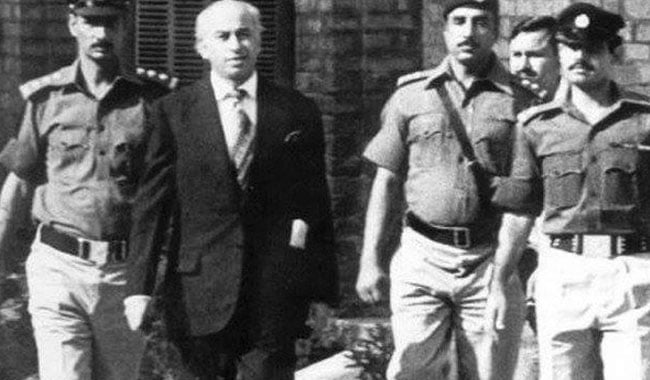
Bhutto arrives for trial
The rest is history and one that has been repeated oft too many times. Bhutto was hanged for the murder of a political opponent in a trial whose ultimate verdict never sat well with the people of Pakistan.
"They are going to kill me. It doesn’t matter what evidence you or anyone comes up with. They are going to murder me for a murder I didn’t commit,” is what he reportedly told his daughter Benazir, as she wrote in the Daughter of The East.
Though one can write pages and pages on Bhutto, his sheer wits and wisdom, his political acumen and charismatic allure, one thing is absolutely clear. History has judged both the man and his enemies, and time has clearly proven who holds sway over the other.
-
Security forces gun down 30 terrorists in multiple IBOs in KP: ISPR
-
MQM-P calls for new province in Sindh
-
US report validates Pakistan military edge over India: PM
-
Banned TTP poses serious threat to Pakistan security: UNSC panel
-
CM Afridi clarifies remarks on by-poll after ECP requests army deployment
-
Dubai sees 3.2m Pakistani passengers in 2025 as airport sets new milestone
-
Security forces kill 23 Indian proxy terrorists in KP's Kurram
-
Pakistan to construct island to boost oil exploration: report











